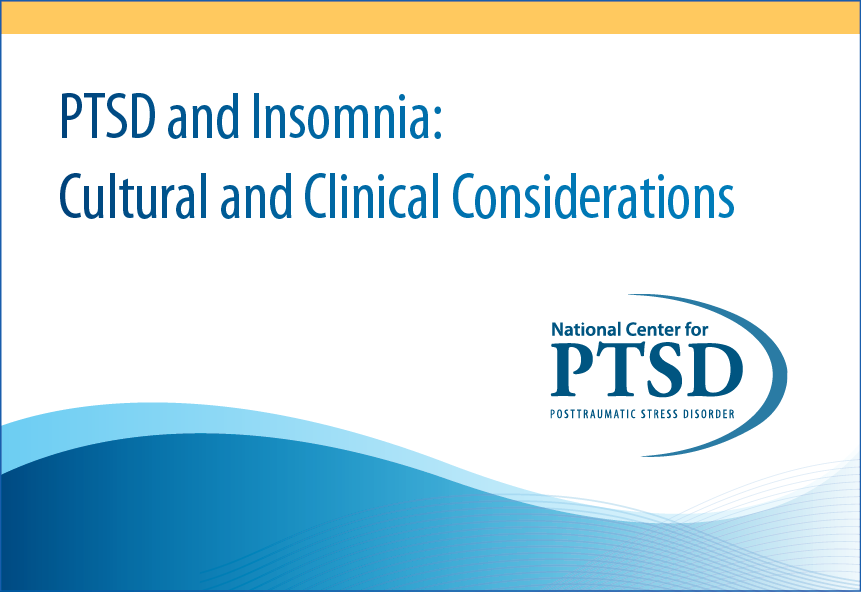PTSD: National Center for PTSD
PTSD and Insomnia: Cultural and Clinical Considerations
Continuing Education
This section brings together free in-depth Continuing Education resources for the Professional community concerned with trauma.
PTSD and Insomnia: Cultural and Clinical Considerations
- Date Created: 07/25/2022
- Time to Complete: 1 hour
- Credits: ANCC, APA, ASWB, ACCME, NBCC, Other Orgs
- Skill Level: Intermediate
- Course Series: PTSD 101, PTSD Consultation Lecture Series
 Author(s):
Author(s):
Description
Many individuals diagnosed with PTSD also report difficulty sleeping and sleep disruption is frequently reported as a persistent symptom after successful treatment of PTSD. Independent evaluation of sleep difficulties for those with PTSD is needed.
Chronic insomnia disorder is one of the most common sleep disorders diagnosed among individuals with PTSD, often requiring separate intervention. However, research has limited guidance or established evidence-based protocols for treatment when PTSD and insomnia are comorbid.
This course reviews the evidence involving considerations for integrated, sequential and concurrent treatment options for co-occurring PTSD and insomnia. The author highlights cultural and clinical considerations related to the assessment and treatment of these comorbid disorders to help inform case conceptualization and shared decision-making.
Goals and Objectives
- Identify how PTSD and insomnia are related and describe research on their comorbidity
- Discuss the VA/DoD Clinical Practice Guideline recommendations for treating comorbid PTSD and insomnia
- Describe cultural and clinical considerations when assessing and treating individuals with comorbid PTSD and insomnia
- Identify how PTSD and insomnia are related and describe research on their comorbidity
- Discuss the VA/DoD Clinical Practice Guideline recommendations for treating comorbid PTSD and insomnia
- Describe cultural and clinical considerations when assessing and treating individuals with comorbid PTSD and insomnia


























